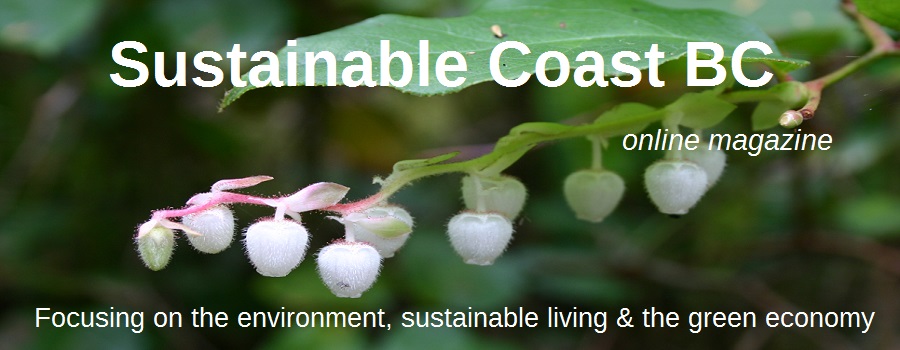News
When a speaker at the Jan. 19 meeting on the fate of the Pender landfill asked Sunshine Coast Regional District (SCRD) Sustainable Services Manager Dion Whyte if there was one good thing he could say about keeping the landfill going, Whyte thought for a moment then said, "It would please a lot of people in this room."
It was a revealing statement because it showed Whyte was aware most of the 150-odd attendees were against the SCRD plan to close the landfill, and Whyte's ironic tone suggested he didn't consider that fact very serious.SCRD chair Donna Shugar kept a tight lid on the meeting by ruling speakers from the audience could only speak for 2 minutes and could not voice opinions or make statements, only direct questions for Whyte to answer. She also ruled that nobody could clap or cheer speakers, causing one attendee to complain that it was like being back in elementary school. The result was that communication was primarily one-way and many burning questions that have been going around the community about landfill closure simply did not get asked, or received unsatisfactory answers. It was not one of the great examples of community consultation.
The main power-point presentation by Whyte was little changed from the ones he gave at two previous meetings, a surprising fact given that so much has changed in the SRCD circumstances since June. The SCRD has run into serious budgeting problems, casting a shadow over a number of programs that affect the proposed Pender landfill closure. At the same time, the Sechelt landfill, whose supposed superiority is key to the SCRD pitch to close Pender, has had a number of serious problems exposed by the BC Ministry of Environment. One of these will shorten the expected lifespan of the Sechelt site from 30 years to as little as 18 years. Another will require installation of anti-leachate measures costing $8 million. In addition, the planned $12 million landfill gas (LFG) management system has been shelved, its future in doubt.
Sechelt's proposed LFG capture project is central to the case for closing Pender as it allows Whyte to argue that Pender garbage would cause less greenhouse gas pollution if moved to Sechelt. With plans on hold and not enough money to proceed, this argument goes up in smoke. Even more problematic is that new government ruling reducing the life expectancy of the Sechelt landfill by a third. This makes landfill space on the coast suddenly very expensive and very scarce. Some thought this might cause the SCRD to re-think its plan to throw away up to 60 years worth of good low-cost landfill space in Pender, but Whyte paid scant attention to the changes, continuing to speak as though gas control is a done deal and landfill space has negligible value.
The question many would have liked to ask him is what will happen in 16 or 18 years when the Sechelt landfill and its $20 million-plus worth of improvements is full? Will the SCRD have to truck waste to Cache Creek as Powell River has been forced to do? What would that cost taxpayers?(Powell River found that requirements for starting a new landfill are so demanding as to make barging and trucking it to the Interior more attractive.) Pender businessman Larry Curtis put a local spin on that question by pointing out that Area A will likely become a municipality before too long and may wish such a valuable community asset as a serviceable landfill with many years capacity had not been tossed away.
If Whyte had a difficult time trying to think of anything good to say about the Pender landfill, he appeared to have an equally hard time saying anything bad about the Sechelt one. When Sakinaw Lake resident Teresa Kishkan asked him directly if the Sechelt landfill has a leachate problem, he answered that it had "never been out of compliance." This seemed evasive given that he had delivered a written report to the Regional Board on November 26 in which he clearly stated, "The site already has leachate management issues."
John Pass of Sakinaw Lake said that the key to solving the waste problem is to get people to take responsibility for their own waste and sending local garbage to the next community on down the line provides a bad example, especially to young people. Howard White, who earlier presented a 500-name petition in favour of keeping the landfill, closed the meeting by urging the SCRD to put the decision to the Area A public via referendum. Shugar replied the regional board had the right to decide the matter itself since it was a coast-wide issue.
[important title=The Save the Landfill Committee] This Pender Harbour landfill meeting report was prepared by The Save the Landfill Committee. For more information see their website at www.savethelandfill.blogspot.com. [/important]
